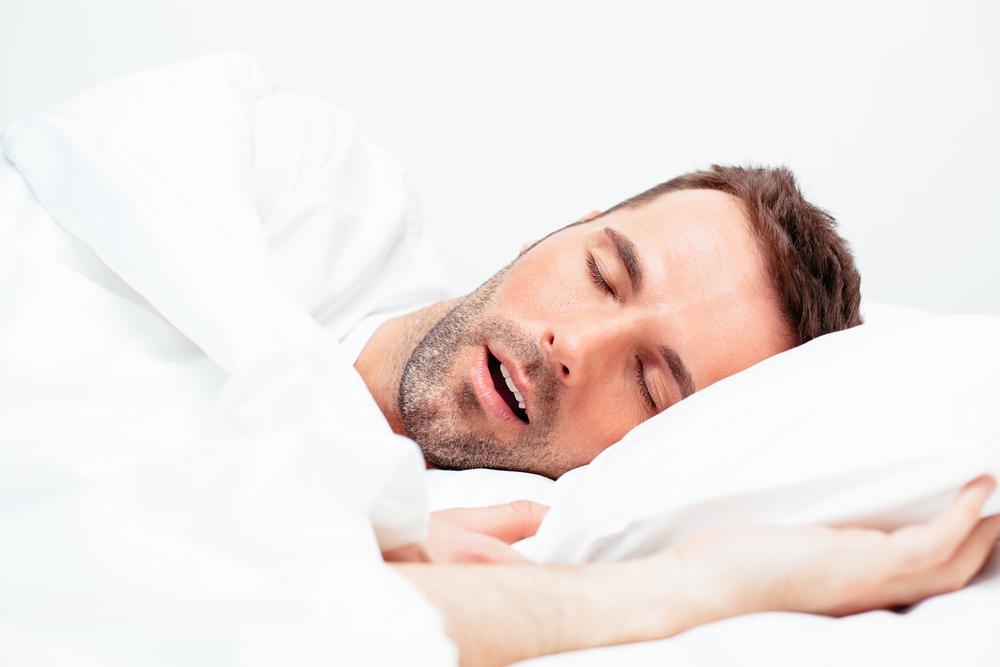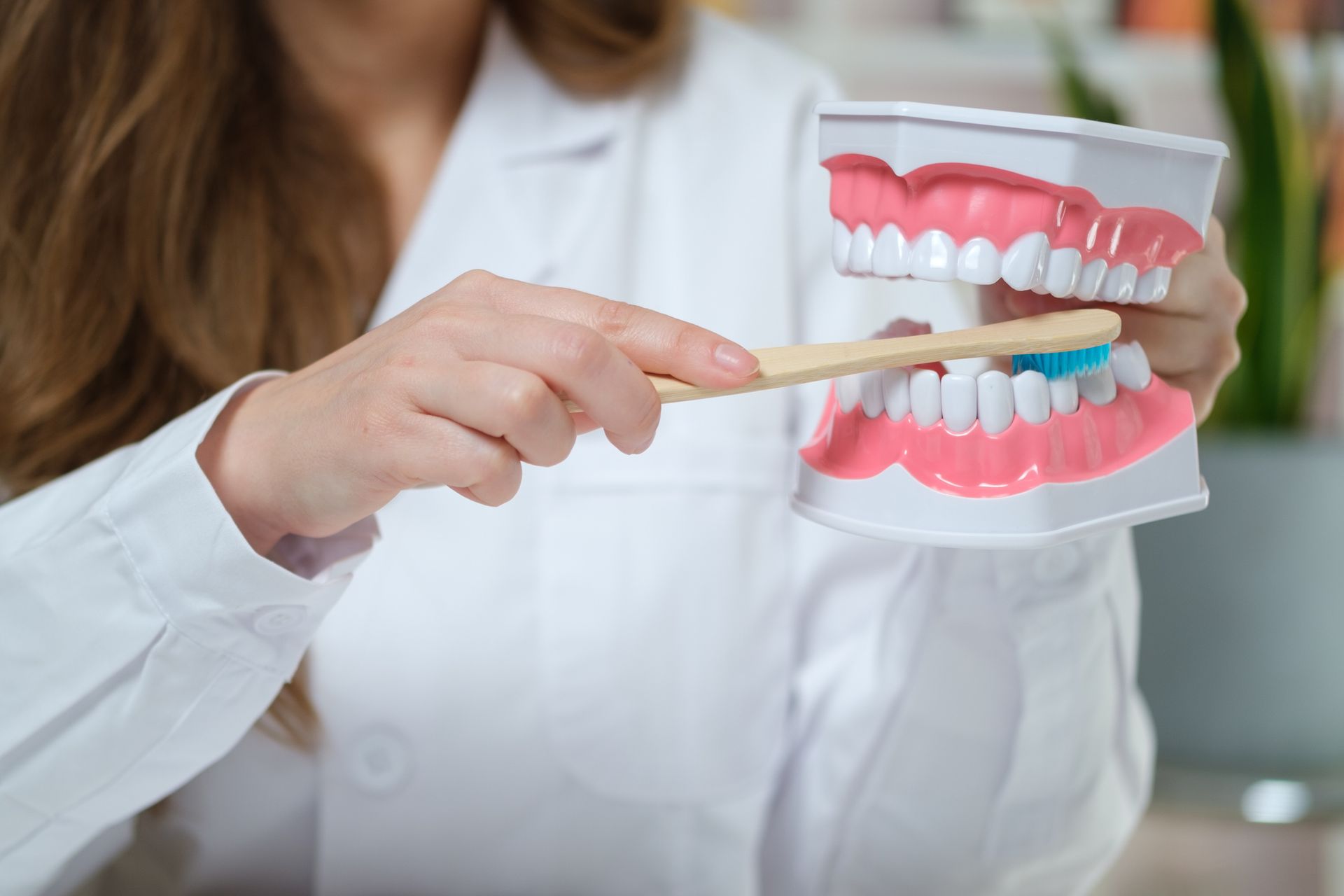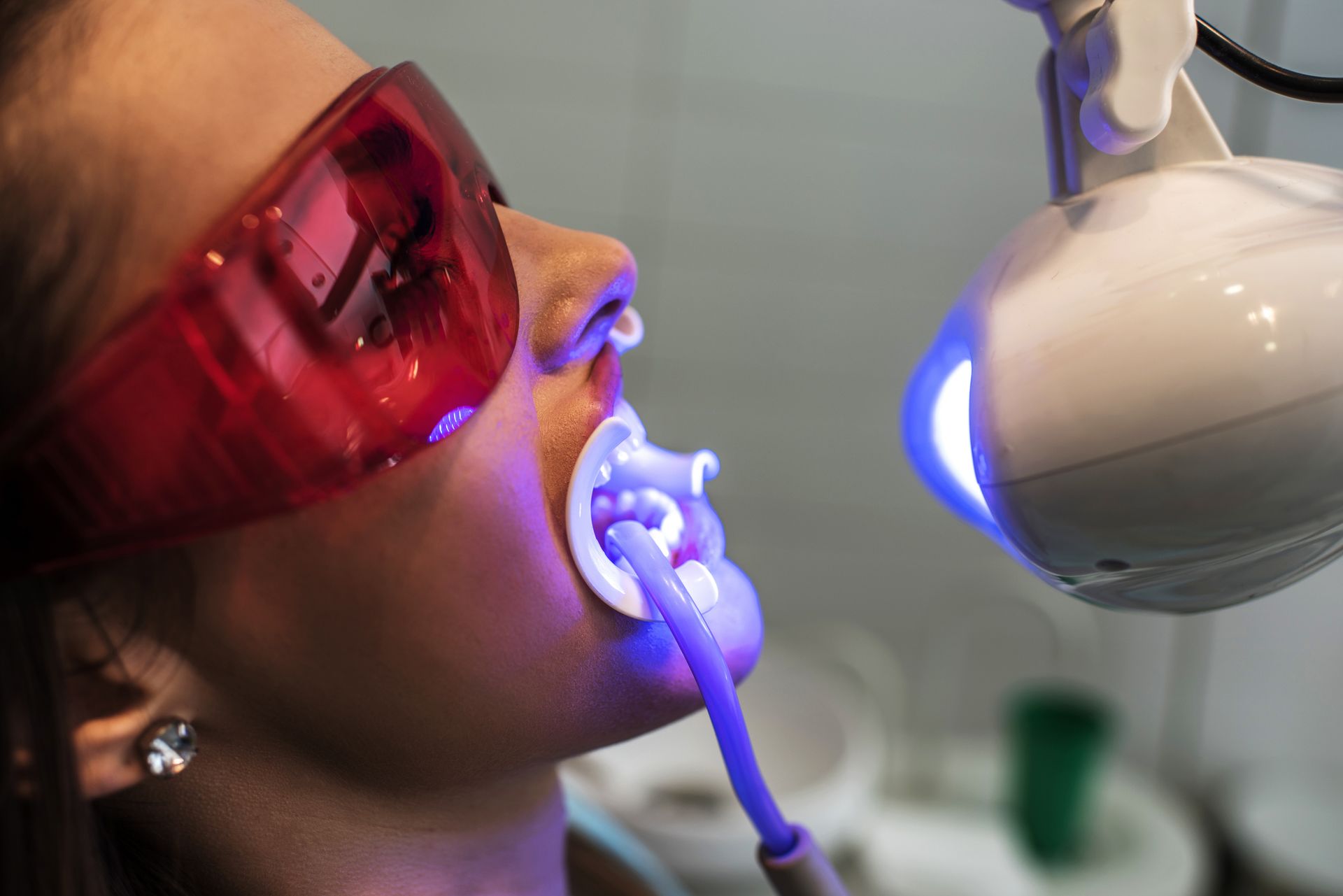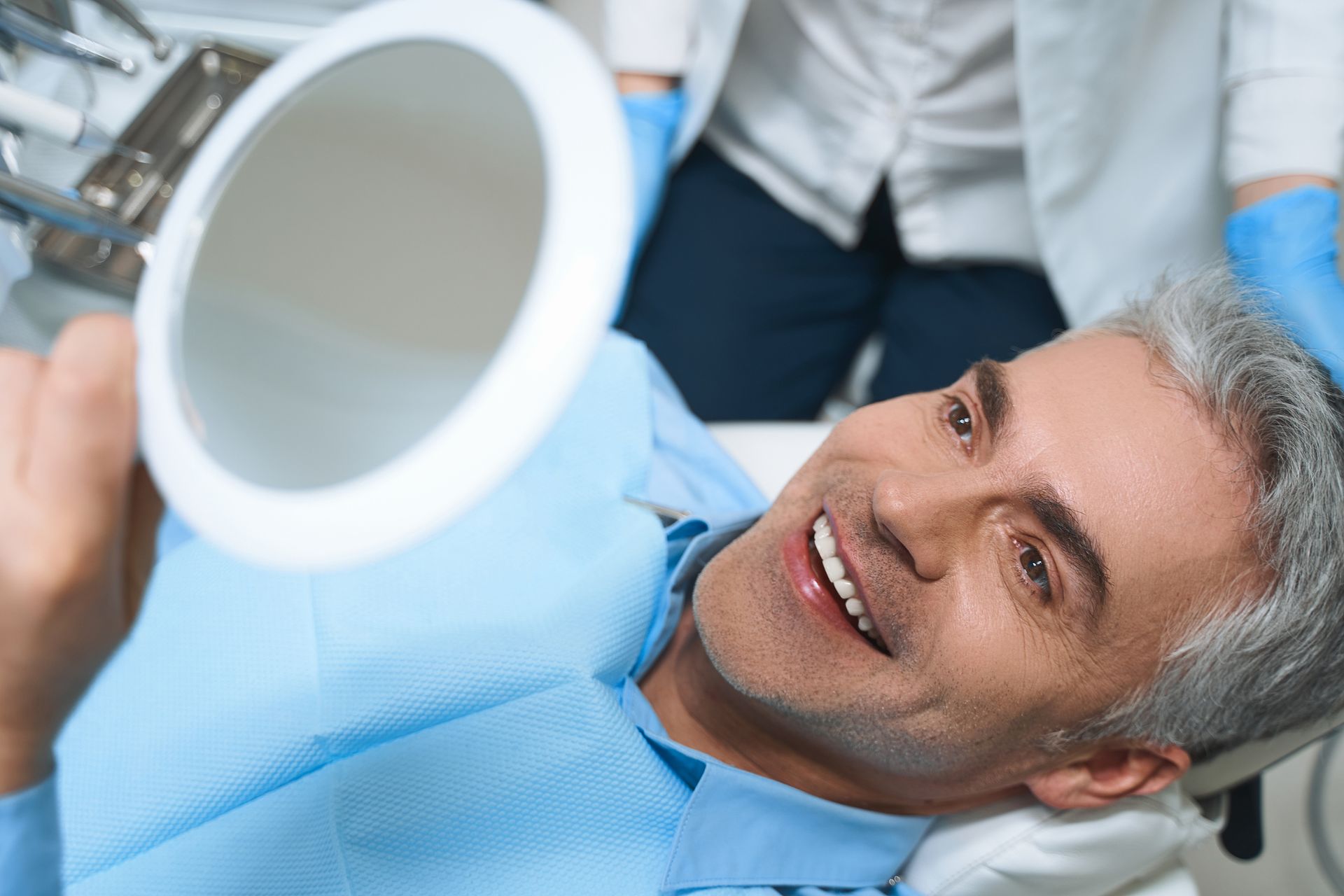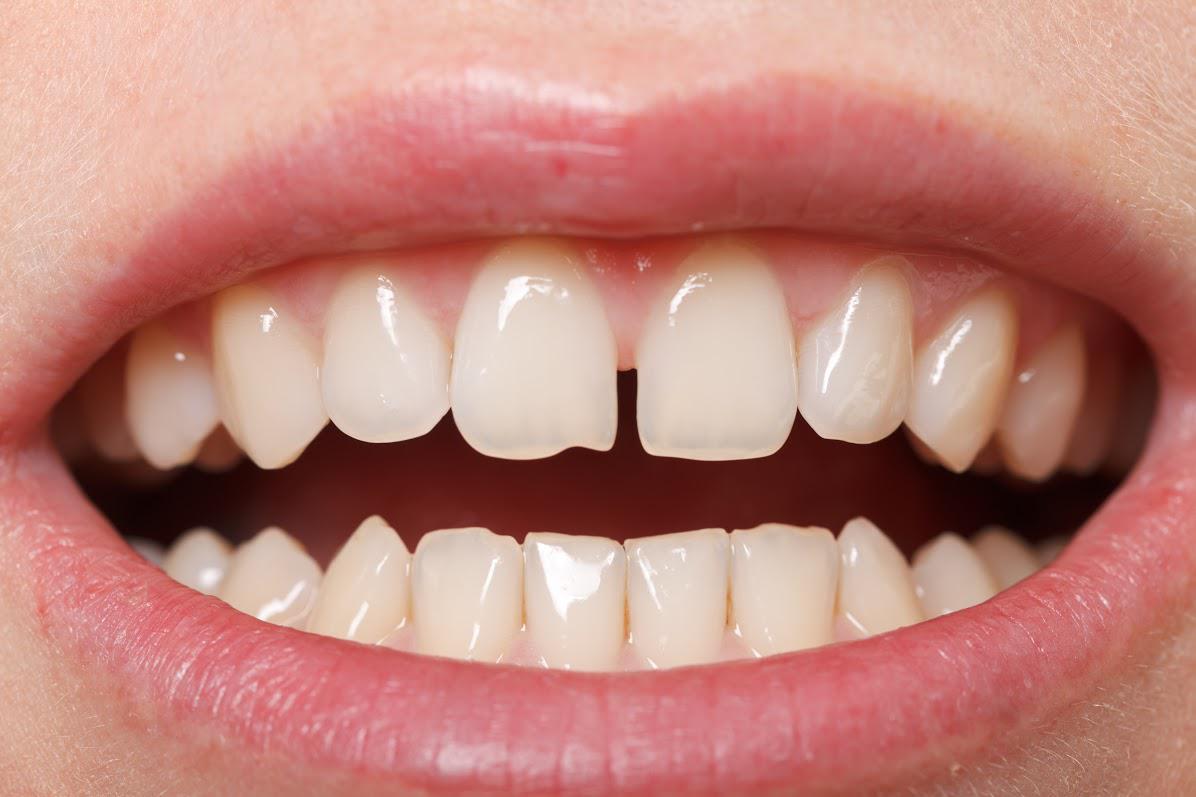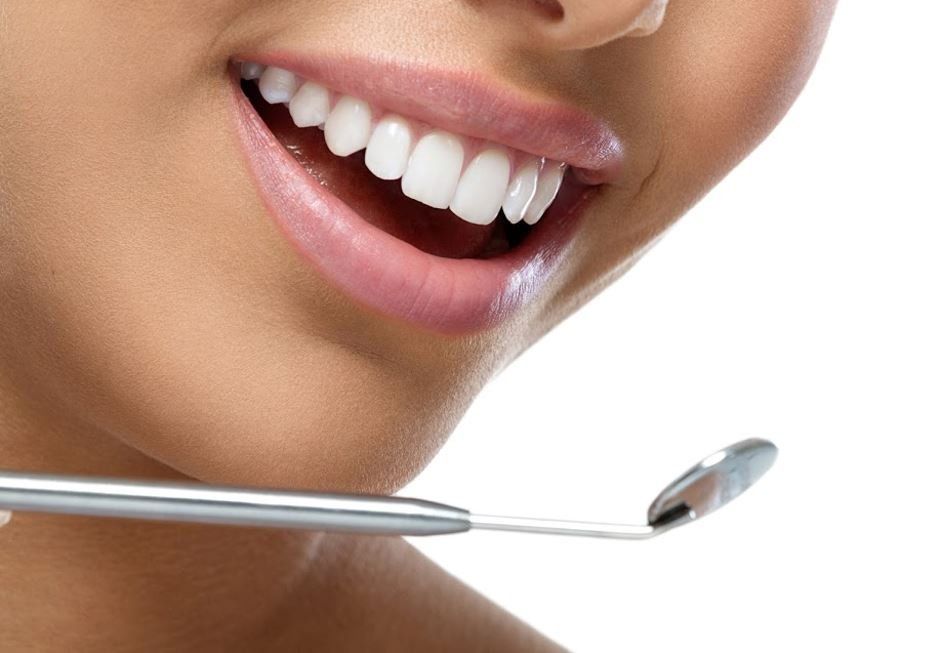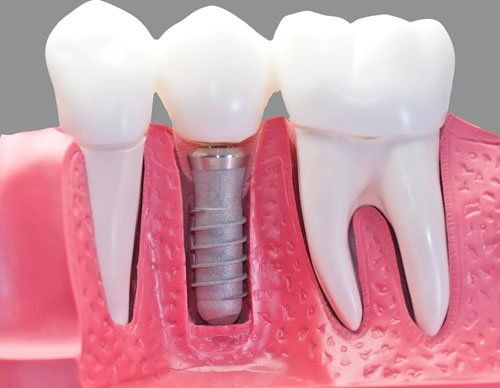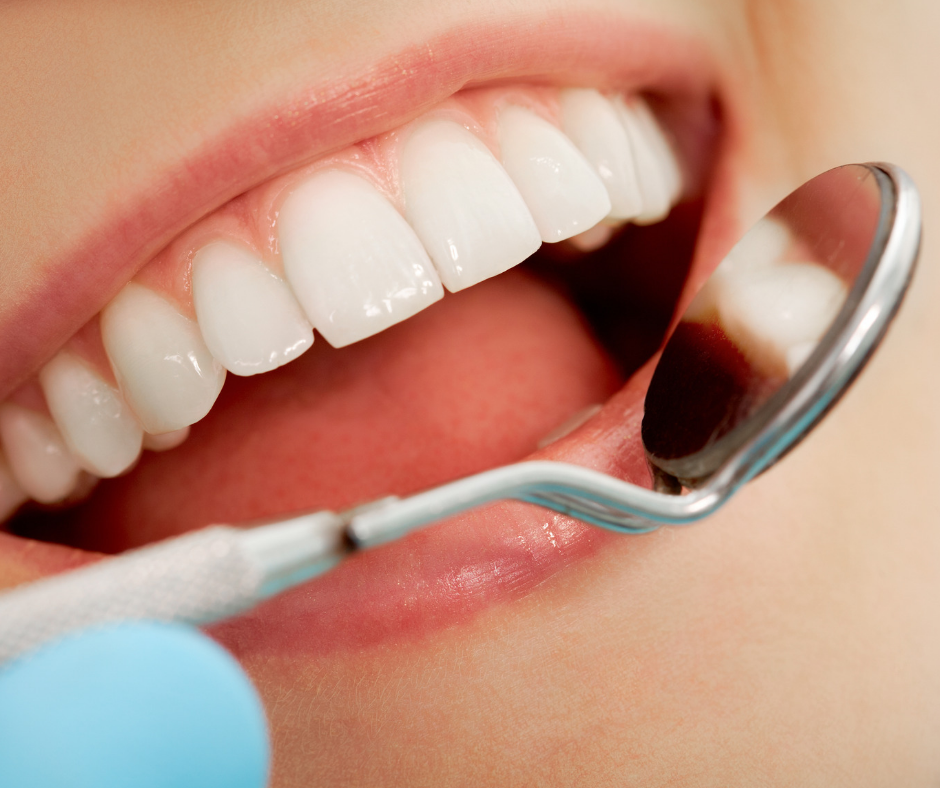The Surprising Link Between Sleep Apnea and Your Teeth
Sleep apnea is characterized by frequent waking from sleep due to blocked airways and affects up to 10% of the adult population . Surprisingly, this under-diagnosed condition can affect the health of your teeth. Read on to find out more about this condition and how it can put your dental health at risk.
Are You at Risk for Sleep Apnea?
While sleep apnea can affect anyone, certain indicators place you more at risk. People more prone to sleep apnea:
-
Have excess body weight
-
Are over 40 years of age
-
Are usually male
-
Have another family member with sleep apnea
If you have a smaller jaw, sinus problems, or large tonsils that make you snore, you may also develop sleep apnea.
What Happens If Sleep Apnea Continues Untreated?
You might not remember waking up continuously throughout the night, but you will definitely notice symptoms the next morning. You might have a headache or a dry, sore throat. Despite a night of rest, you will still feel drowsy throughout the day from lack of quality sleep. You might even fall asleep repeatedly during the day. Less sleep also makes you easily irritable and possibly depressed.
If left untreated, over time these symptoms become more serious. The constant strain of forcing itself to wake up just to breathe takes a toll on your body. You are more at risk for high blood pressure, stroke, heart attack, and diabetes.
How Is Sleep Apnea Related to Your Teeth?
Sleep apnea occurs when blocked airways deprive you of oxygen. Your body then forces you to wake up enough to take a conscious breath. This association with the airways ultimately has an impact on your mouth, jaw, and teeth.
Teeth Grinding
Bruxism, or teeth grinding, is often found in people that have sleep apnea. Many sufferers unconsciously grind their teeth in an effort to open their airways. Constant friction wears the enamel of the teeth and leads to tiny cracks, chips, and fractures that weaken your teeth and make them susceptible to decay.
Additionally, the motion of grinding places strain on the muscles and bones of your jaw. Over time you may experience chronic pain and jaw misalignment.
If undiagnosed sleep apnea makes you grind your teeth , any future dental work to improve or repair your worn teeth is at risk for damage as well.
Temporomandibular Joint Dysfunction
TMJ dysfunction is characterized by pain and the inability to fully move your jaw joint and the surrounding muscles. You may already have pain in your jaw from teeth grinding, but sleep apnea can increase that pain to the level of TMJ dysfunction. Lack of sufficient oxygen from restricted airways intensifies jaw pain and headaches. Deprivation of good REM sleep further contributes to higher levels of pain in joints and muscles.
Periodontitis
Among the several causes of periodontitis, or gum infection, is chronic inflammation. You may visit your dentist regularly and brush and floss to control plaque, but overall inflammation can be present in the gums of your mouth as well. Tiny pockets form between your teeth and gums where saliva and food particles can quickly turn into plaque and bacteria.
Experts believe that sleep apnea causes a spike in inflammation levels already present in the body, including in the mouth where periodontitis can occur. Shockingly, one study found that 60% of periodontitis sufferers also had sleep apnea.
What Treatment Options Are Available?
Differing severities of sleep apnea require different treatment options. Mild apnea may disappear if you stop smoking, change your sleep position, or lose weight.
If you have moderate or heavy apnea, you may benefit from a continuous positive air pressure, or CPAP, machine. CPAP machines deliver a steady stream of air into your nasal passages to provide much-needed oxygen.
Other types of treatment include a simple oral appliance that repositions your tongue and jaw to help you breathe better. Gregory S Rutherford, DDS, PA, can help you with dental problems caused by sleep apnea. Visit us today to learn how we can improve your oral health.

